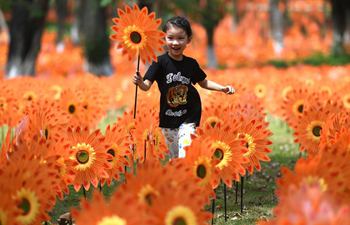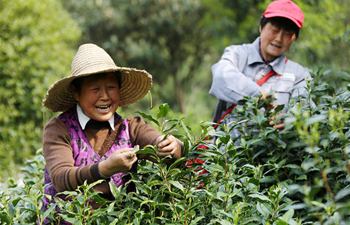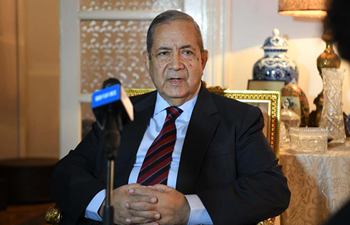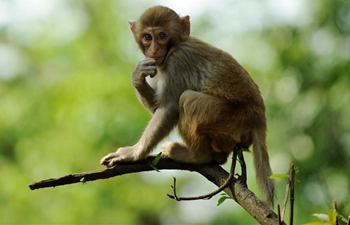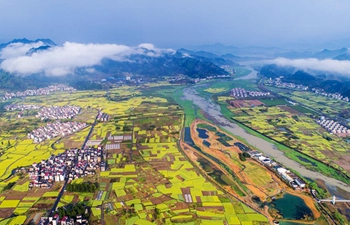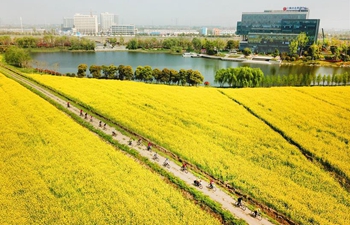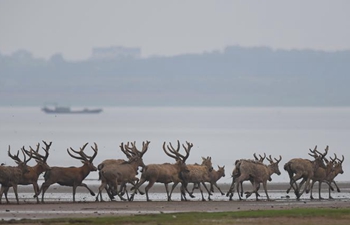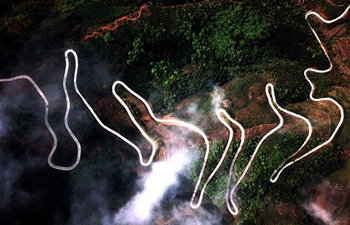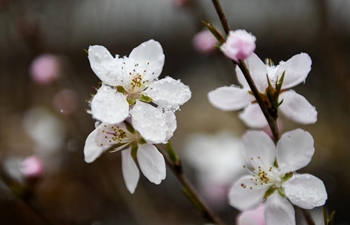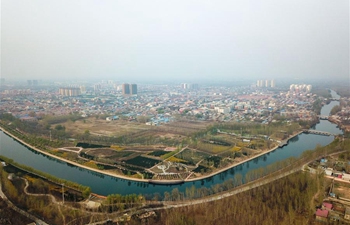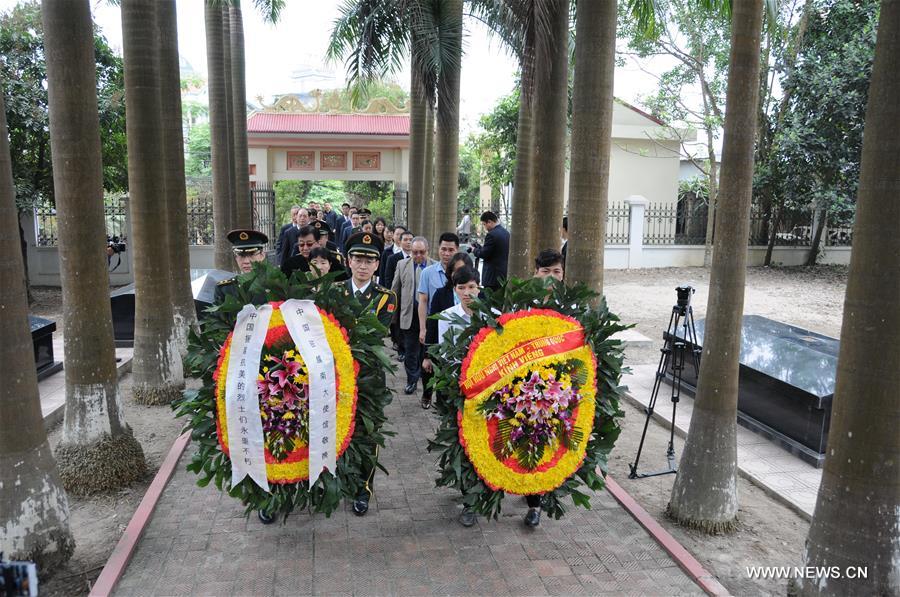
People offer wreaths to Chinese martyrs at the Xuan Mai Martyrs Cemetery in Hanoi, Vietnam, on April 4, 2018. Representatives of the Chinese embassy in Vietnam, Chinese enterprises, students and the media, accompanied by local officials, on Wednesday held a memorial ceremony in the cemetery where 10 Chinese martyrs were buried, on the occasion of Tomb Sweeping Day, or Qingming Festival. (Xinhua/Wang Di)
by Tao Jun, Nguyen Xuan
HANOI, April 4 (Xinhua) -- In front of a monument with a red inscription reading, "Everlasting remembrance of martyrs," a group of around 40 people bowed their heads in silence here on Wednesday morning.
Dressed in black and white, representatives of the Chinese embassy in Vietnam, Chinese enterprises, students and the media, led by Yin Haihong, Charge d'Affaires of the embassy, accompanied by local officials, stepped upward in sequence.
They offered incense in this memorial ceremony on the occasion of Tomb Sweeping Day, or Qingming Festival.
Here in the cemetery in Xuan Mai town, Chuong My District, about 40 km from downtown Hanoi, 10 Chinese martyrs whose black granite graves lie in the shade of longan and areca palm trees, lay resting in eternal peace.
"The Chinese martyrs sacrificed themselves here in Vietnam for our country's independence. Generations of Vietnamese people have been, and will always be taking good care of their tombs with gratitude," said 44-year-old Huynh Thi Phuong, who has been a custodian at the cemetery over the past 10 years.
Phuong took over at the cemetery from her father-in-law, veteran Phan Van Thai, when he passed away in 2008.
"My father-in-law fought in both the anti-France war and the war against the United States invasion. He went home in 1972 and took care of the tombs here until he died," recalled Phuong amid the faint, fragrant smoke of the burning incense.
Phuong's family used to live far from the cemetery, but her father-in-law relocated to just opposite the place to better take care of it.
"Now my younger son often helps me with cleaning the tombs. My father, myself, and now my son. It spans generations," Phuong said, smiling happily as she talked about her 12-year-old son, Nghia, which means "gratitude."
Not only in Phuong's family, generations of Vietnamese people in the Xuan Mai have been told about the sacrifice the Chinese martyrs made.
"We tell students in our locality about the Chinese heroes who gave Vietnamese people a helping hand. We even assign students from Xuan Mai A Secondary School to come here regularly to help with cleaning," Le Thi Bich Hong, an officer at the People's Committee of Xuan Mai town, told Xinhua on Wednesday.
Besides regular upgrades, in November 2017, the committee, with support from Chuong My authorities and the Hanoi Department of Labor, Invalids and Social Affairs, conducted a large-scale refurbishment at the cemetery with a total investment of 1 billion Vietnamese dong (44,250 U.S. dollars).
"We see it (the cemetery) as a monument of solidarity between our two peoples," said Nguyen Huy Du, vice president of the Xuan Mai People's Committee, adding that visits are often organized on occasions such as Vietnam Martyrs' Day (July 27) and the Lunar New Year Festival to pay tribute to the fallen heroes.
According to the custodian, people in the area also come to pay their respects to the Chinese martyrs by offering incenses and fresh flowers on the 1st and 15th day of a lunar month or on lunar holidays.
"China-Vietnam bilateral relations are developing very healthily. It is our historical responsibility to preserve and develop such good relations between the two parties and two countries," Yin said.





